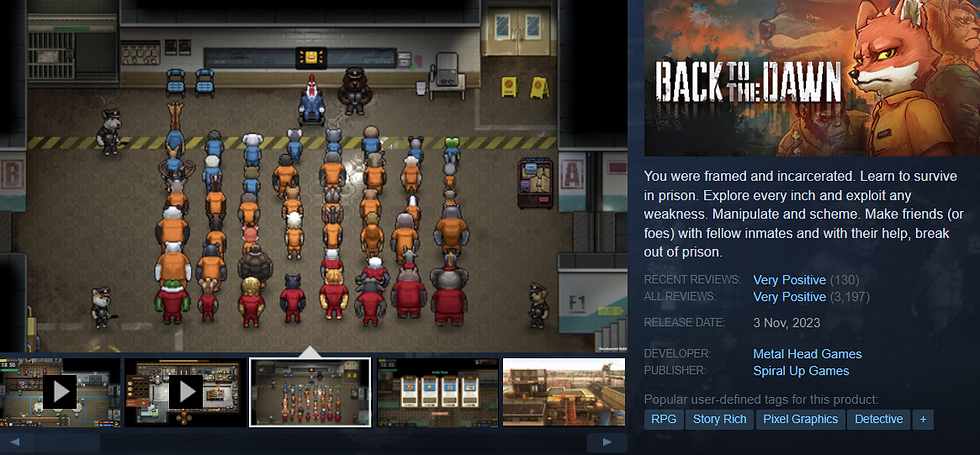Itch.io vs. Steam Early Access for Indie Game Developers
- Aldric Chang
- Apr 2, 2024
- 2 min read

Indie game developers, today we delve deeper into the attributes of two prevalent game-launching platforms - Itch.io and Steam Early Access. At Spiral Up Games, we know each platform has unique strengths. Understanding these differences is crucial to optimize your game’s debut and development journey.
Itch.io: A Canvas for Indie Developers
With its developer-centric ethos, Itch.io provides indie developers an open-ended platform to introduce their games. It champions individuality and creative control, as demonstrated through these key features:
Page Customization: Itch.io hands the reins of the game's page design to developers. This isn't just about selecting colors or graphics. Developers can modify the page layout and structure. This degree of control allows developers to communicate their game's personality more authentically and vividly.
Pricing Freedom: Itch.io grants you pricing autonomy. You can experiment with different models, like fixed prices, pay-what-you-want, or even a hybrid. You can test various strategies to see what works best for your game and its audience.
Community Interaction: Direct interaction between developers and players is encouraged on Itch.io. Developers can publish devlogs, respond to player feedback, or share game updates seamlessly. This unrestricted interaction fosters a close-knit community around your game.
Steam Early Access: Exposure and Extensive Feedback
Steam's Early Access program puts your game in front of a broad audience while it's still being developed. Here are the key features that make Steam Early Access stand out:
Broad Reach: Steam's massive user base is its strongest suit. Early Access games are mixed in with the main Steam catalog, meaning your game can get significant exposure.
Structured Presentation: Unlike Itch.io, Steam offers a templated approach to game pages. Each game's page has a standardized structure with specific sections for description, updates, reviews, and community interaction. This setup ensures consistency across games, which can aid user navigation but restricts customization.
Feedback Volume: The sheer number of users on Steam means that you can gather a wealth of player feedback. Developers can utilize this feedback for substantial game improvements, although the large user base can be double-edged. Negative feedback, if not managed well, can have a considerable impact on a game's reputation.
In Conclusion
Itch.io and Steam Early Access cater to different stages and needs of game development. Itch.io's customization and direct community interaction can be invaluable in the early stages, allowing developers to shape their game's identity and nurture a community from the ground up.
Steam Early Access, with its vast user base, is more suited for later development stages when the game is ready for broader feedback and exposure. However, developers need to be mindful of managing user expectations due to the platform's high visibility.
Your game might even benefit from both - starting with Itch.io for initial feedback and community building, then transitioning to Steam Early Access for extensive feedback and wider exposure.
You may also be interested to know the pros and cons of being in a beta or 'early access' status for an extended period of time.
Remember, whichever platform you choose, consistent engagement and responsiveness to your community is critical. It's through this iterative feedback process that games evolve and improve, paving the way to a successful launch.


